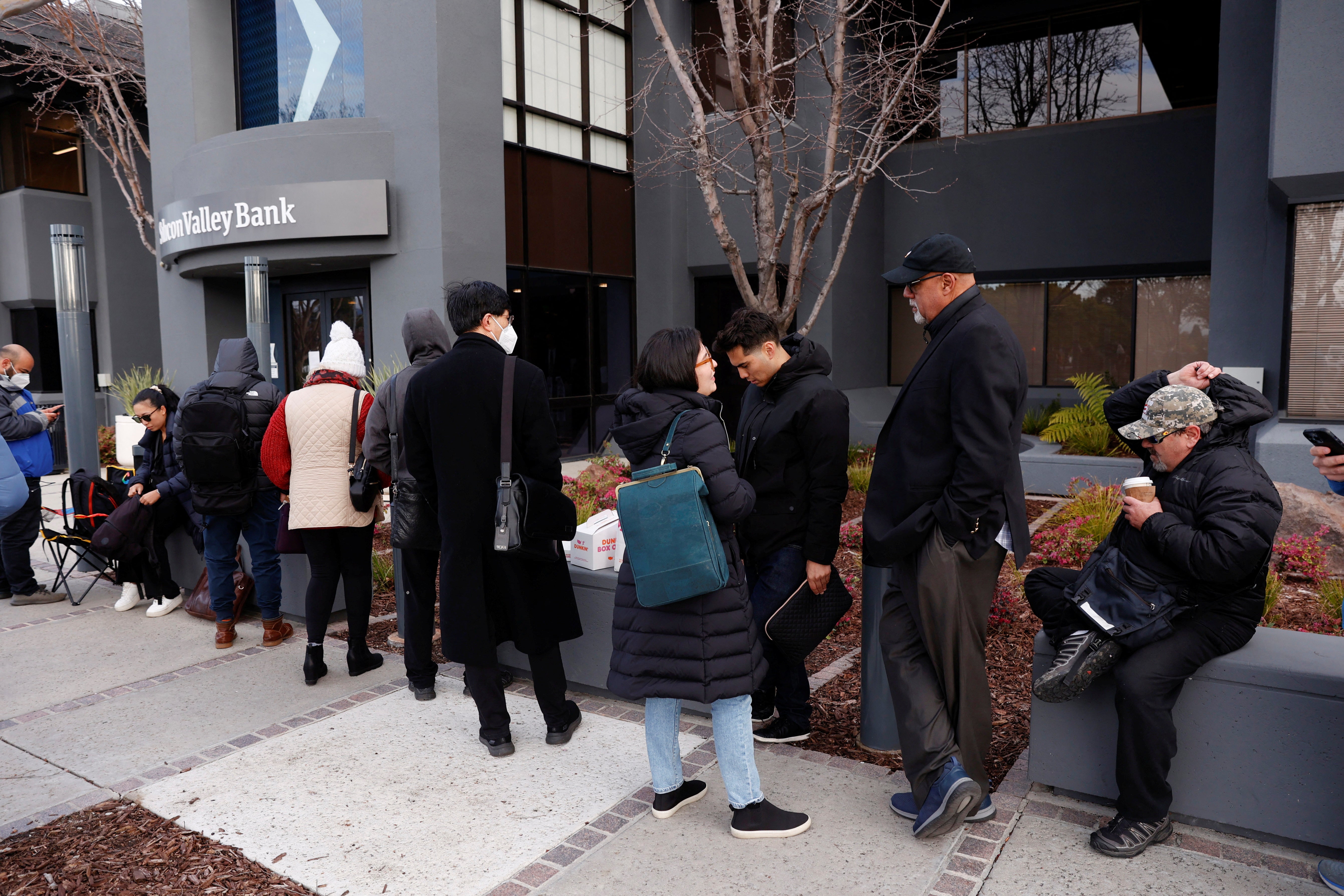Silicon Valley rescue saves UK tech industry – but shares in other banks plummet
Regulators in the US closed the Silicon Valley Bank on Friday after depositors rushed to withdraw their funds all at once

Britain’s tech industry was saved from a crisis on Monday after HSBC rescued the UK arm of Silicon Valley Bank in a deal brokered by the government and the Bank of England.
The £1 buy-up avoids the need for a taxpayer-funded bailout and secures the future of hundreds of firms put at risk by the collapse.
But despite reassurances from governments around the world about the low risk of further bank failures, stock markets were hit by fears that high interest rates may be crippling the banking sector.
European bank shares saw their biggest rout since Russia’s invasion of Ukraine, while on Wall Street stocks in smaller banks plummeted.
At a meeting in Brussels, French finance minister Bruno Le Maire called on markets to “calm down”.
Regulators in the US closed the Silicon Valley Bank on Friday after depositors rushed to withdraw their funds all at once.
Talks to rescue the UK arm continued over the weekend and into the early hours of Monday and included phone calls from prime minister Rishi Sunak on his plane on the way to San Diego for the Aukus summit.
Chancellor Jeremy Hunt confirmed that all SVB UK customer deposits have been protected under the sale to HSBC, with no taxpayer cash involved.
He said some of the UK’s leading tech companies could have been “wiped out” if a solution had not been found after the California-based Silicon Valley Bank went bust on Friday.
The US government also moved to stop a potential wider banking crisis by stepping in to protect all customer deposits.
It came as the spread began to take hold, with regulators announcing that New York-based Signature Bank had also failed and was being seized on Sunday.
But financial markets remained sceptical that the contagion has been contained, with the FTSE 100 Index down by nearly another 2 per cent on Monday despite the co-ordinated action.
SVB specialises in lending to start-up technology companies and is a key banking partner for venture capital firms, with more than 3,000 customers in the UK.
SVB UK had around £6.7bn of deposits and loans of about £5.5bn as of Friday last week, while its balance sheet stood at £8.8bn, according to the Bank of England.
But the Bank said the “scale of the deterioration of liquidity and confidence means that, in the view of the Bank and the Prudential Regulation Authority, the position was not recoverable”.
Stock market turmoil came as investors worry that a relentless rise in interest rates – aimed at getting inflation under control – may be cracking the banking system.
The most pressure is on the regional banks a few steps below in size of the massive, “too big to fail” banks that helped take down the economy in 2007 and 2008.
Shares in First Republic plunged 78 per cent, even after the bank said on Sunday it had strengthened its finances with cash from the Federal Reserve and JPMorgan Chase.
Huge banks, which have been repeatedly stress-tested by regulators following the 2008 financial crisis, were not down as much. JPMorgan Chase fell 0.7 per cent, and Bank of America dropped 3.7 per cent.
An index of shares in euro zone banks had fallen by 7 per cent by lunchtime on Monday, with Germany’s Commerzbank down 15 per cent and Spain’s Sabadell down 10.7 per cent.
“Restoring liquidity in the banking system is easier than restoring confidence, and today it is clearly about the latter,” said Quincy Krosby, chief global strategist for LPL Financial.
President Joe Biden also sought to project calm, insisting the United States banking system is safe.
“Your deposits will be there when you need them,” Mr Biden said.






Join our commenting forum
Join thought-provoking conversations, follow other Independent readers and see their replies
Comments